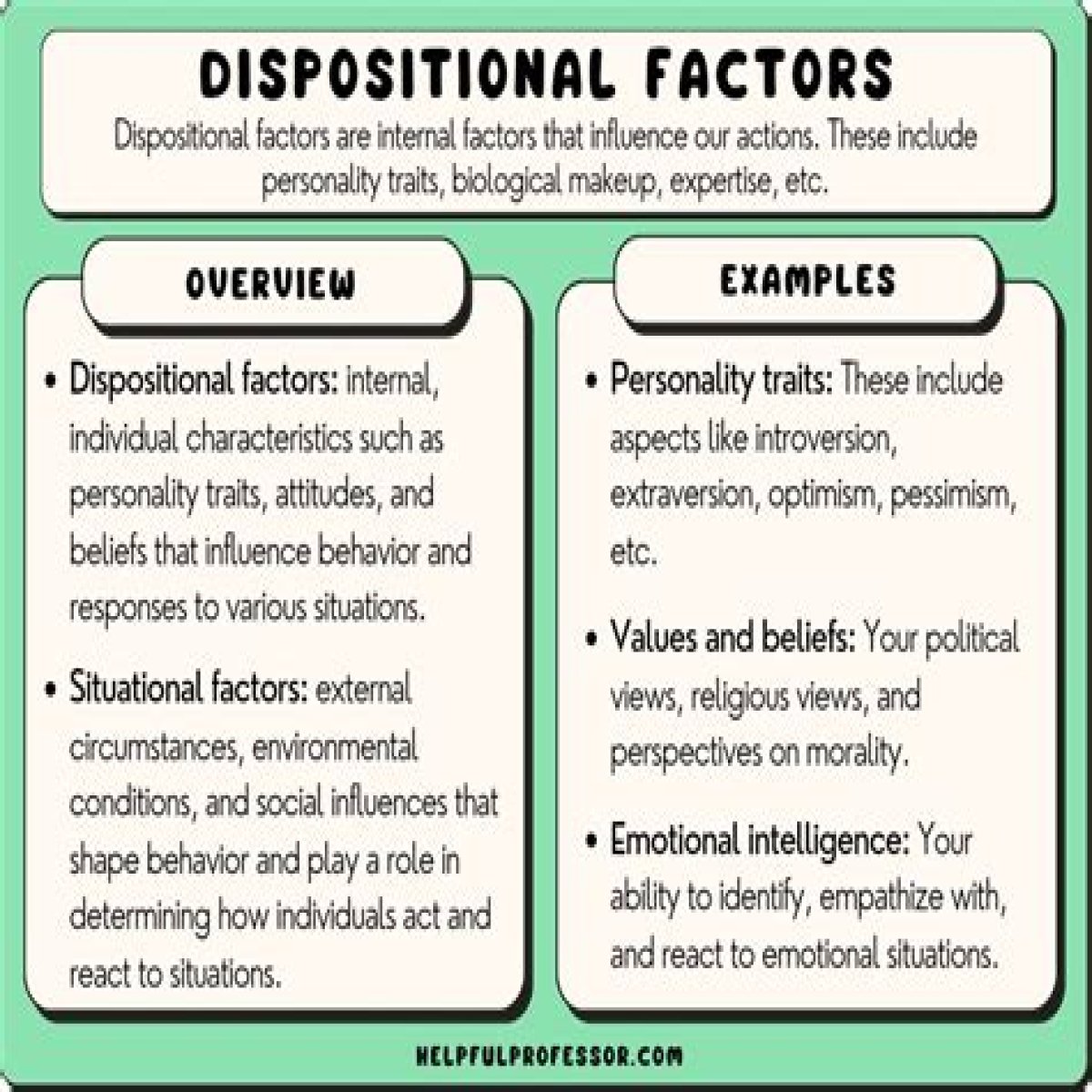- What are examples of dispositional factors?
- What is a dispositional cause of behavior?
- What is an example of situational behavior?
- What are 5 things that influence our behavior?
- How situational influences and dispositional influences might explain inappropriate behavior?
- Whats a dispositional explanation?
What are examples of dispositional factors?
Things like individual personality traits, temperament, and genetics are all dispositional factors. They are things that come from within an individual that they do not have much control over. The opposite of dispositional factors are situational factors which are influences like the environment and others around you.
What is a dispositional cause of behavior?
Dispositional attribution assigns the cause of behavior to some internal characteristic of a person, rather than to outside forces. For example, we attribute the behavior of a person to their personality, motives or beliefs.
What is an example of a dispositional attribution and a situational attribution?
Dispositional attribution is when we perceive an event to be caused by an internal factor, while situational attribution is when we perceive an event as caused by an external factor. An example of situational attribution is when we blame the weather for being late to work.
What are situational and dispositional influences on behavior?
Situational and Dispositional Influences on Behavior Situationism is the view that our behavior and actions are determined by our immediate environment and surroundings. In contrast, dispositionism holds that our behavior is determined by internal factors (Heider, 1958).
What is an example of situational behavior?
In an external, or situational, attribution, people infer that a person’s behavior is due to situational factors. Example: Maria’s car breaks down on the freeway. If she believes that the breakdown happened because her car is old, she is making an external attribution.
What are 5 things that influence our behavior?
What factors can affect behaviour?
- physical factors – age, health, illness, pain, influence of a substance or medication.
- personal and emotional factors – personality, beliefs, expectations, emotions, mental health.
- life experiences – family, culture, friends, life events.
- what the person needs and wants.
What is a dispositional attitude?
Dispositional attitudes are an individual difference in the tendency to form positive versus negative attitudes. As positive (negative) attitudes promote active (inactive) responses to stimuli, we predicted that dispositional attitudes would be positively correlated with patterns of general action.
What is disposition in psychology?
n. a recurrent behavioral, cognitive, or affective tendency that distinguishes an individual from others.
How situational influences and dispositional influences might explain inappropriate behavior?
Explain how situational influences and dispositional influences might explain inappropriate behavior. Thus, a situational view tends to provide an excuse for inappropriate behavior, and a dispositional view tends to lay blame for inappropriate behavior.
Whats a dispositional explanation?
Dispositional explanations of obedience focus on internal characteristics that lie within the individual (e.g. personality) that lead them to be more or less likely to follow the orders of an authority figure.
Which of the following is an example of a Prelinguistic event?
The prelinguistic stage ranges from birth to approximately 6 months. Noises in this stage include crying, whimpering, and cooing. These sounds are not considered language because they are involuntary responses to stimuli.
What are situational causes?
the ascription of one’s own or another’s behavior, an event, or an outcome to causes outside the person concerned, such as luck, pressure from other people, or external circumstances.
